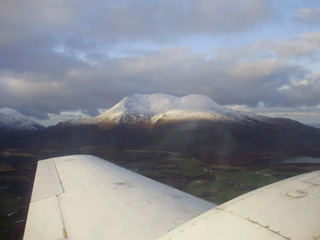What is Geophysics?

Geophysics uses high tech, sensitive instrumentation to detect and analyze various physical properties of the Earth, which are linked to its geology. Geophysical surveys are the collection and mapping of geophysical data. This data can prove invaluable to mining companies, oil companies and other companies as it helps to provide a means to pinpoint possible high value extraction sites.
Many different industries have a high dependence on geophysical surveys such as:
An Evolving Industry
There is an increased need for geophysical surveys and many companies are trying to revolutionize the industry by finding new and more creative means for acquiring accurate data.
Geophysical survey companies are constantly investigating the newest and most innovative sensory technologies that can increase the quality of the survey data and the ease with which they are accomplished. There is a constant push to develop the most cost effective, yet accurate and detailed results possible.
The escalation in the volume of mineral explorations is the main catalyst pushing the growth in the geophysical survey industry. The growing needs for minerals, uranium, rare earths and fossil fuels (potential petroleum reservoirs) have all led to increased funding for mineral exploration and also geophysical data recovery. Geophysical survey companies that can provide accurate geophysical mapping products have thus risen in prominence and are becoming a trusted part of mineral exploration process. They can provide a thorough means of mapping by both aerial and ground methods. Aerial methods are gaining favour because of the ease and large amount of area that can be mapped in a short period of time. Breakthroughs in the sensitivity of the equipment used for aerial surveys are making it possible to get more detailed data results from the safer survey altitudes.
The Methods and Instrumentation
Geophysical survey companies can use a variety of survey methods that require differing types of instrumentation that vary widely in acquisition costs and results. Some of these methods include:
-
Seismology
-
Gravity Gradiometers
-
Remote Sensing
-
Magnetometers
-
Radiometrics
-
Ground Penetrating Radar
Geophysical survey companies that are held in the highest regard are companies offering proven survey methods. Ideally, surveys should combine a number of different technologies to analyze the survey area as much as possible in one flight and cross reference the data to make the survey results as accurate as possible. Together these methods can provide information to help reliably predict the differences between rock formations that contain deposits of minerals or hydrocarbons and regular rocks that do not contain these valuable deposits.
Companies specializing in airborne geophysical surveys have made major developments in terms of the equipment used on both fixed wing and helicopter surveys . The most prominent and in-demand companies tend to be those with a proven track record of providing cost effective, and timely surveys using multiple survey methods.